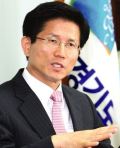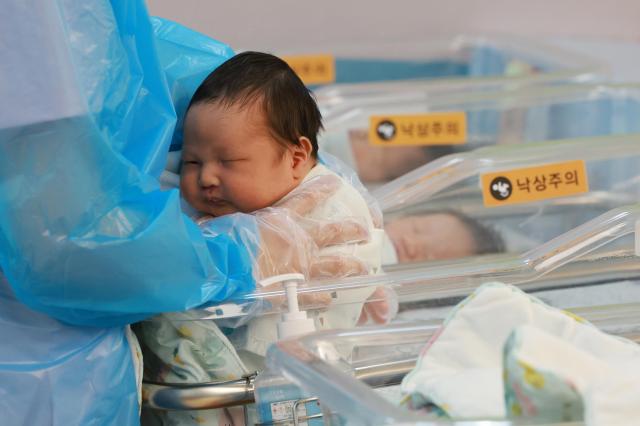
SEOUL, September 25 (AJP) - Korea's birth tally has grown for 13 consecutive months, offering a rare silver lining in the country's demographic crisis as more young people show willingness to marry and have children. But experts warn the rebound is heavily concentrated in Seoul and the capital region — and largely confined to better-off couples.
According to Statistics Korea, 21,803 babies were born in July, up 1,223 or 5.9 percent from a year earlier and the largest July tally since 2021. From January to July, births totaled 147,804 — a 7.2 percent increase year-on-year, marking the sharpest rise since records began in 1981. Marriages also jumped, with 20,394 couples tying the knot in July, up 8.4 percent from a year earlier and the highest for the month since 2016.
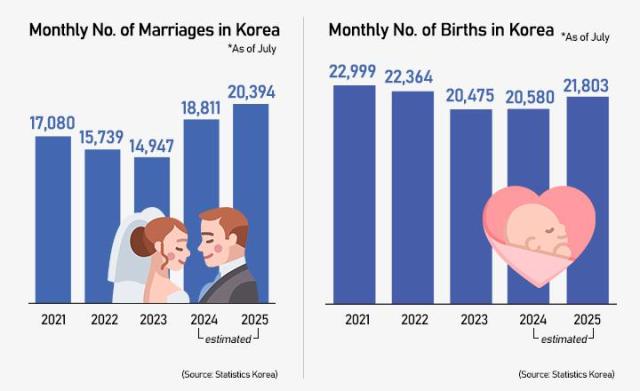
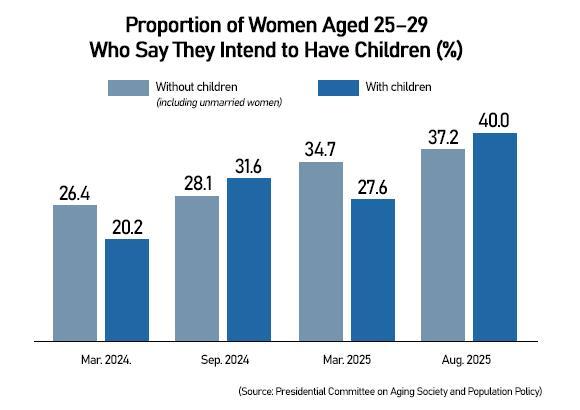
The rebound is partly attributed to the so-called "Echo Generation," born between 1991 and 1995, who are now entering their early 30s, traditionally viewed as the prime family-forming years. It also reflects a modest shift in women's attitudes toward childbirth.
A government survey of 2,800 people nationwide aged 25–49, conducted August 20–27, showed that 37.2 percent of childless women aged 25–29 said they intend to have children — up from 26.4 percent a year earlier. Among women already with children, 40 percent said they were willing to have another child, nearly 20 percentage points higher than last year.
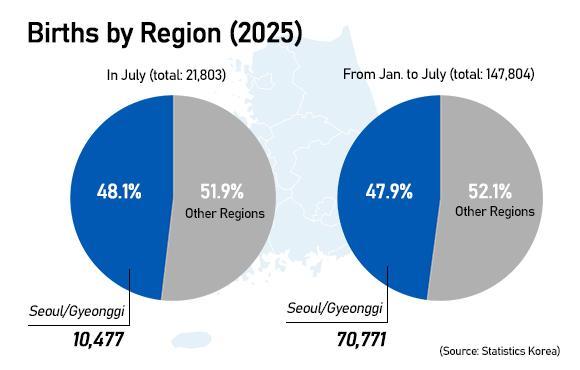
Yet the gains remain uneven. In July alone, 10,477 babies were born in Seoul and Gyeonggi Province — nearly half of the nationwide total. From January to July, the capital region accounted for 70,771 births out of 147,804, again just under 50 percent.
With more than half of Koreans in their 20s and 30s now living in the capital area, Seoul continues to hold a demographic edge while widening the gap with provincial regions.
Experts caution that structural obstacles — including high housing prices, soaring private education costs, and difficulties women face balancing careers after childbirth — remain firmly in place.
"Before concluding that women's attitudes toward marriage and childbirth are really shifting, we need to check whether survey questions were consistent across years," said Kim Cheong-seok, sociology professor at Dongguk University. "If the wording changed, results could be distorted. Broad values like 'marriage is essential' differ greatly from specific intentions such as 'I plan to have children.'"
Lee Joo-hee, sociology professor at Ewha Womans University, echoed skepticism. "I don't view the slight rise in birth intentions as a sign of a fundamental shift. The core barriers — costs of private education, and the challenge for women to sustain careers after childbirth — remain intact."
She added that income-based disparities in childbirth are still severe. "The improvements are mostly among higher-income groups, while lower-income households are effectively giving up on having children," Lee said.
Copyright ⓒ Aju Press All rights reserved.


![[K-Tech] Low birthrate forces military pivot toward drones, automation](https://image.ajunews.com/content/image/2025/07/17/20250717150357642333_278_163.jpg)
